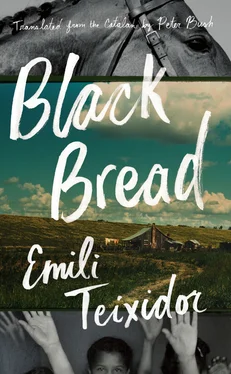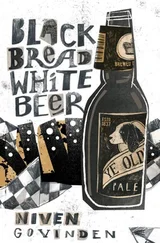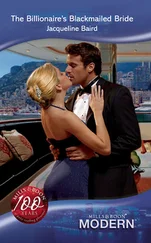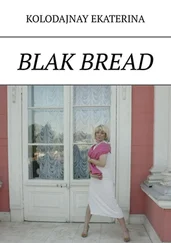“Are you ready to leave?” Father Tafalla asked bluntly.
Cry-Baby and I smiled shyly. Had he been given the responsibility to tell us when and how we were to leave?
“Those two live wires are always ready for anything!” said Aunt Ció, walking towards us. The friar accompanying Father Tafalla stood a prudent distance from us, seemed to be awaiting his orders.
Father Tafalla looked into my eyes. He spoke especially to me: “You have been extremely lucky,” he said. “The past is past. You know what I mean, don’t you?”
I didn’t really understand, but I nodded. The Superior glanced at me ironically, as if wondering whether to continue his sermon or leave it, and he went for the last option, turned round to Cry-Baby and said: “And how are you, little girl? Are you too ready for your new life?”
He stopped, no doubt because Núria’s bulging eyes that stared at him in amazement made him realize the young girl didn’t understand his involvement in all that.
Aunt Ció put her hands on Cry-Baby’s shoulder, as if to bring her closer to the Superior, and said: “We don’t know what will happen to this young lady, so far away…”
Cry-Baby’s eyelids flickered nervously open and shut.
“May God bless the two of you,” concluded Father Tafalla, signalling to the friar accompanying him that they should leave. “And let me know as soon as Grandfather Hand arrives, because there are a lot of loose ends still to tie up.”
“Kiss the Father’s hand,” Aunt Ció told us, as she herself stooped down to kiss it. “And thank him. I don’t know how we can ever repay his goodness.”
Cry-Baby and I kissed the back of the Superior’s hand and waited on the spot until he’d disappeared round the corner of the house, flanked by Aunt Ció and the friar who followed on a couple of paces behind. Aunt Ció whispered to Father Tafalla, as she did in her endless goodbyes to my mother, and the friar listened, slightly tilting his head to hear her confidences. What could he still have to tell Aunt Ció that they’d not been able to say before? What secrets might they be?
The second we were left by ourselves, Núria and I ran upstairs to Grandmother. We found her alone, despondent, with her knitting basket by her feet and her needles and wool abandoned on her skirt, with her hands folded on her lap. We walked quietly over and she greeted us with a nod, as if to say yes, she had registered our presence, and we stood silently by her side until she whispered: “They make smoke, rather than giving out light,” and I understood she was referring to the Saint Camillus friars who’d just left, because I’d heard her use the same phrase when she found out about the way Xavier the novice was implicated in Aunt Enriqueta’s flight, and I immediately understood why she said that.
And then she added: “I’m not a shadow of what I was…”
And after a sigh: “My body no longer does what I tell it to.”
She raised her hands in a theatrical, exaggerated manner, and went on: “But I’m still the young lass I once was on the inside, it’s only the memory of the girl I once was, that I still am deep inside. I believe our youth never abandons us, the passing years simply bury it deep down and it finds it harder and harder to get out. That’s what happens to us old folk, you young’uns don’t notice, but we carry our youth within us, we really do — always!”
She squeezed our hands and shook them as if she wanted to tell us something that was beyond words.
“Father Tafalla and Mr. and Mrs. Manubens think they are the masters of the world, and we should let them think that, we should let the Emperor’s clothes well alone… you know what I mean? Fonso, your father, Núria, was always very good with his hands, as a young child he was already making boxes and cages and all kinds of gadgets, his hands are worth a fortune, and when he lived in hiding here for a time after the war, he learned to knit, he knitted jerseys to while away the time, jerseys for everybody, did you think I was the only one doing that? Poor little me, I could never have made so many, not in a month of Sundays! He went at it much faster than I did and dressed the whole family, and he was the one who couldn’t budge…oh, dearie me! and the monastery blankets for the convent he folded for the refugees crossing the border and hiding in the woods…”
She lapsed into silence for a moment and behind her spectacles her eyes seemed to pierce the horizon and see everything she was telling us.
“In the old days, all us brothers and sisters lived on the land, we were all near the house, and I felt like a mother hen, like a mother hen with all her chicks around her, but youngsters grow up and want to fly off on their own and find shelter in other nests, the whole coop scattered… Now Bernat is the only one left, and he feels out of place and any day now he’ll find a young lass and will fly her a long way away, like all the others. The folk were right who predicted that factories and roads would kill everything, and that cities gobble everything up and are the root of all evil. I won’t live to see it, but I’m sure this place will be a desert in a few years, machines will do labourers’ work and nobody will want land work. The world goes round and round and life goes on, everything changes and nothing stays as it was.”
She let go of our hands and smiled that mischievous smile that was her way of seeing off her bad moods and grumbles: “Crikey! Why am I telling you all this? I wanted to tell you something else, but the nonsense Father Tafalla and the others stuffed my head with this afternoon made me forget. Now what did I want to tell you just now? You’ll be saying my head’s not right and my brain’s gone to pot? Ah, I think I do remember now!”
She took our hands once again but gently now, as if she’d passed on all her energy to us before.
“The allies can’t delay much longer before deciding to intervene. I’d like to see it, but I don’t know if I’ll still be here. Whatever happens, remember that Father Tafalla helped us a lot. Grandfather Hand has been considerate towards him and transported papers across the border, but without Father Tafalla we might never have raised our heads again. When we were ground down, he helped Dad Quirze get going again with livestock and timber and perhaps as a result he may become a master one day. Don’t you ever forget that!”
One Sunday in late summer Mother brought a bundle of clothes for me and said I should get ready because any day now Mr. and Mrs. Manubens would come to take me away.
When it was time for her to leave, I accompanied the two women as far as the place with panoramic views by Can Tona, by the bend that hid the farmhouse out of sight. Aunt Ció and Mother continued chatting away, and I didn’t even try to catch their words now, as if all that no longer belonged to my universe and I wasn’t fired to find out the latest twists and turns in the lives of my relatives and the acquaintances who seemed linked to their existence by knots they couldn’t undo, a thread that was too tight or too loose, broken strings or new cords, links and bonds that frightened them as if stability in their lives depended on them and couldn’t survive without those tensions.
They dropped names and expressions that meant practically nothing outside their conversations and that stung my brain like a bee, creating a welt or wart of suspicion I tried to stroke or squeeze like an annoying pimple you try to remove with your fingers.
“You mean…?” said one, panic-stricken.
“You can be dead sure,” the other affirmed.
“Wouldn’t…!” exclaimed the former.
“Wouldn’t…? You’ll soon see! Remember what I just said.”
“You don’t mean wouldn’t…?”
Читать дальше












